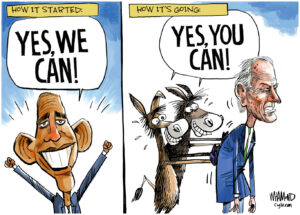The Problem With ‘Jobs’
For all this talk about the need for more jobs, politicians and the corporate media rarely discuss whether those positions empower individuals rather than simply boosting the economy.
For all this talk about the need for more jobs, politicians and the corporate media rarely discuss whether those positions empower individuals rather than simply boosting the economy.
Brooklyn-based writer Ned Resnikoff takes a closer look, with a view to the personal consequences of forcing people into what is often temporary, low-paid, anxiety-inducing work. –ARK
Your support is crucial...Ned Resnikoff at The New Inquiry:
This is the danger of talking about “jobs” in the abstract: It can mean forcing people into precarious, temporary, low-wage, nonexistent-benefit work that will most likely land them back on the welfare rolls in a couple of months. Emphasis here belongs on the word forcing, because employers — faced with an oversupply of labor in the broader job market — have the upper hand in negotiations. These same employers can feel free to deprive their employees of the basic security needed to stay off welfare for good. After all, once the fallow season ends, the state will subsidize those workers’ subsistence until the business community needs them again.
Thus welfare becomes a means of keeping spare workers on ice until they can again be made productive — which is to say, until they can again be slotted into temp jobs. But collecting a welfare check shouldn’t mean forfeiting the right to a baseline of self-determinacy. If welfare is to serve to benefit the poor — which is to say for actual human beings, and not for an abstract intellectual construct such as the Economy — then it should ameliorate domination, not perpetuate it in a modified form.
As we navigate an uncertain 2025, with a new administration questioning press freedoms, the risks are clear: our ability to report freely is under threat.
Your tax-deductible donation enables us to dig deeper, delivering fearless investigative reporting and analysis that exposes the reality beneath the headlines — without compromise.
Now is the time to take action. Stand with our courageous journalists. Donate today to protect a free press, uphold democracy and uncover the stories that need to be told.







You need to be a supporter to comment.
There are currently no responses to this article.
Be the first to respond.